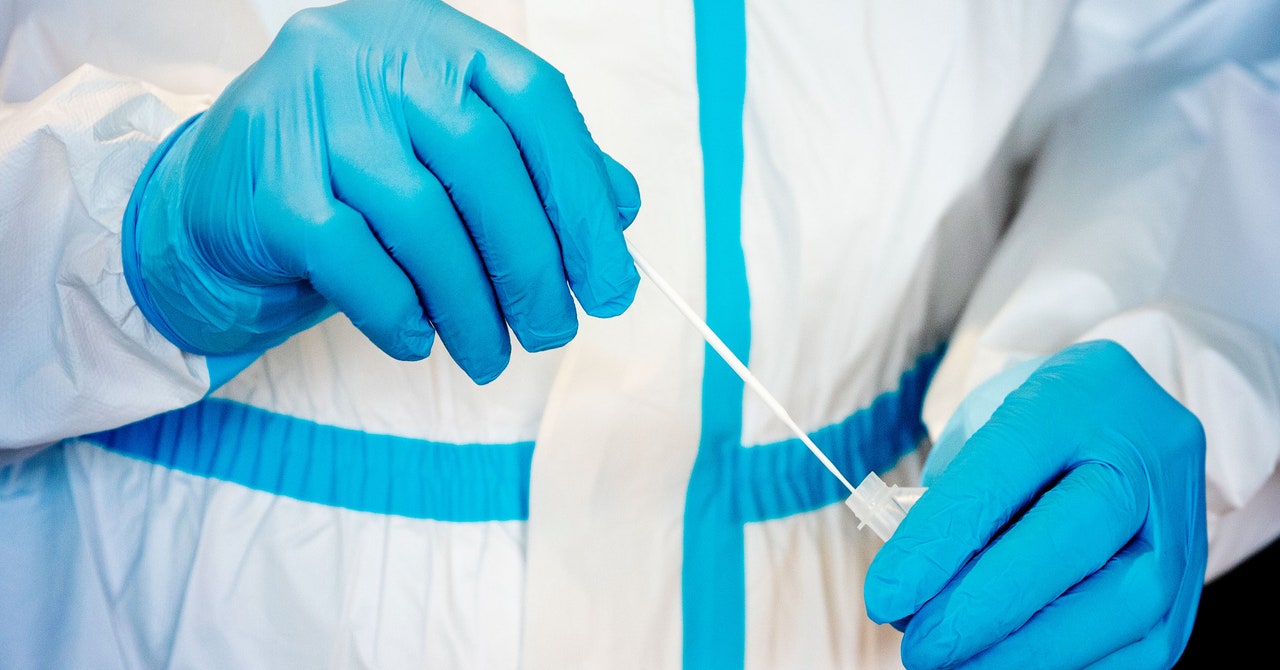
For the past two years, the hottest data set in the United Kingdom has dropped every Friday. Scientists, journalists, and amateur data sleuths all dial up one specific website: The Covid-19 Infection Survey, run by the Office for National Statistics (ONS), an independent government agency. With 180,000 participants who are swabbed every fortnight, it is one of the largest surveys of coronavirus infections and antibodies in the UK. It monitors how many people are infected with Covid at any one time and whether specific regions or age groups are at particular risk. Because it samples such a large and randomized slice of the population, it avoids biases from local changes in testing guidance, individual behavior, or access to tests.
Randomly selected households receive a letter from the ONS that invites them to register for the survey. Once they’re registered, a worker visits the home to collect swabs from each volunteer’s throat and nose and ask a few questions. After the first appointment, volunteers have the option to continue taking part in the survey, receiving follow-up appointments that include monthly blood tests. The information gathered will be linked to the participants’ health records to uncover how Covid-19 infection—and vaccination—can affect things like frequency of doctor’s visits or health conditions that may develop after infection.
In return, participants have been remunerated with vouchers for hotels, the cinema, and supermarkets. The survey was said to be “worth its weight in gold” for its role in understanding Covid epidemiology and the ability to respond quickly to new variants—not just in the UK, but around the world. (During times of particularly high demand, the ONS released a midweek preview of Friday’s numbers on Wednesday, like a widely anticipated movie dropping teaser trailers.) “I’m not aware of anything comparable anywhere else in the world, really,” says Colin Angus, a health inequalities modeler at the University of Sheffield.
The survey’s special ingredient is its randomness. Unlike daily testing data, which is typically collected from people who are showing symptoms or have recently been exposed to Covid, it samples just about anyone. Daily test numbers can also be muddied by social inequities that affect how available tests are and whether there’s more testing within any particular age or demographic group. “It’s really the only study I know that gives estimates that I would be scientifically confident in, because there’s so many problems with trying to do it in the messy real-world data of people who just happen to go get tested,” says Jennifer Beam Dowd, professor of demography and population health at the Leverhulme Center for Demographic Science at the University of Oxford.
But as the pandemic enters its third year, England has declared it’s time to “live with Covid,” and justifying the costs of such widespread data collection is getting trickier. In late February, the British government announced that the survey will continue, but in a slimmed-down version, likely with fewer participants. The UK government also announced in mid-March that funding for two other major infection surveys will end: Funding for the React study, led by Imperial College London researchers, which randomly tests about 150,000 people across England every month and was responsible for discovering that a third of Covid cases are asymptomatic, will be scrapped at the end of March. The ZOE Covid study, which tracks volunteers’ symptoms via an app, is also losing government funding. Free mass testing is also ending on April 1, with free tests only available to the most vulnerable.
Researchers like Angus warn that relaxing restrictions and surveillance at the same time could be unwise, since these surveys act as early warning systems for new variants or mysterious bumps in cases. With stripped-back restrictions, data is all we’ve got. “It’s like sticking your fingers in your ears and going ‘La, la, la—if I don’t look for it, then the bad thing must have gone away,’” says Angus.


